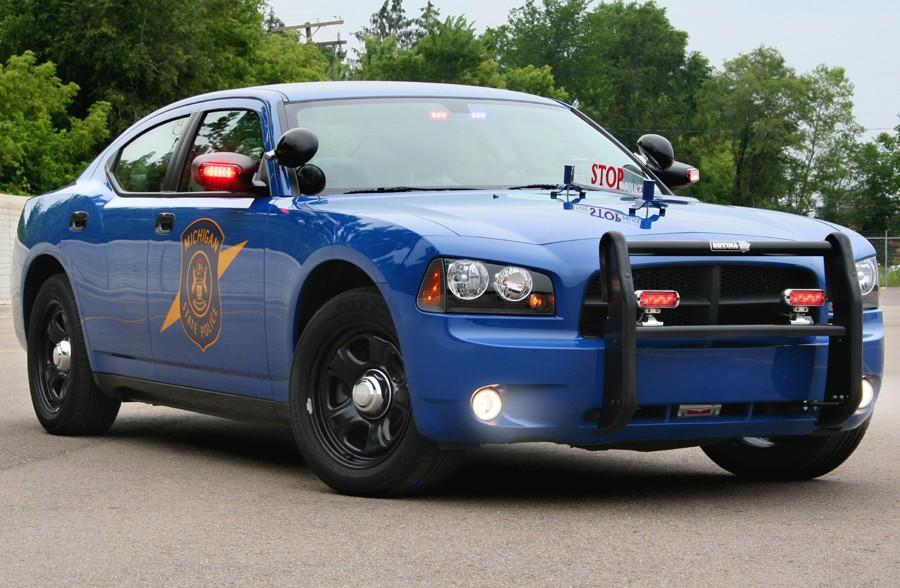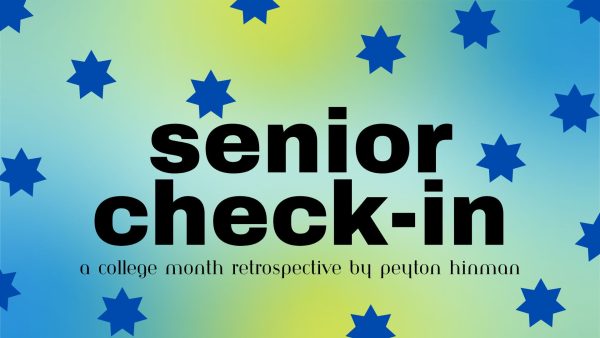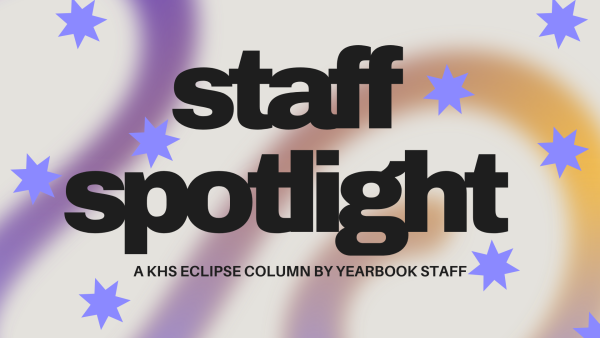During a traffic stop, police say to be respectful
IMAGE / Wikimedia Commons
A 2006 Michigan State Police Dodge Charger flashes its red lights from its grill and the backside of its mirrors.
Some people are scared of spiders, some people are scared of snakes, but for most of folks, what is even scarier are the blue and red lights that flash in their rearview mirror — the police.
Every driver needs to know what to do when they see red and blue lights flashing behind them.
Officer Randall Nelson, Otisville Police Department, said remaining calm and being respectful is important.
He listed off what should be done.
1. Pull over and turn off your car.
2. Wait for the officer to come to your window and remain calm.
3. Keep your hands in plain sight. Police prefer it when hands are kept on the steering wheel. This makes your safety and the officer’s safety a priority.
4. If you have a weapon, permitted or not, tell the officer first. Only with permission from the officer, reach for it slowly and reveal it.
5. If you have anything you should not have, tell the officer immediately. Do not hide it; that will only get you in more trouble.
6. The officer will ask for your license and registration. The officer may ask you for other things, but stay calm.
Besides these tips, Nelson said being cooperative is important.
“Most of all, be compliant and pleasant,” Nelson said. “I (the officer) want to get on my way as much as you do.”
For Detective Timothy Williams of the Genesee Township Police, respect and honesty helps make the interaction between the driver and the officer remain positive.
“What I appreciate is for people to be polite and accept responsibility for their actions,” Williams said. “What I do not like is when people are rude and want to argue about the stop.
“The people getting pulled over do not know me, so I do not understand why they want to be rude to me. Honesty and a good attitude go a long way during a stop.”
To get an idea of how often people get pulled over and why, The Eclipse informally surveyed 15 students and 15 staff members.
Even though the sample was small, it looks like most people, in their lifetime, will be pulled over.
Not all for the same reason, however: your headlight could be out, you could be speeding, or you could have forgotten to put on your seat belt, for instance.
The survey focused on people who said they drive regularly in order to get more accurate results.
It was done anonymously and respondents had the choice to tell the reason why they got stopped by police.
Their choices of why they were pulled over were: speeding, not following road rules (blinker, seat belt), car malfunctions (headlight out, burned out license plate light), and a choice to write down the reason if it was not already a choice.
Seven out of 15 students have gotten pulled over.
Four of them for speeding, two for not following road rules, and one for a car malfunction
For the staff, who have driven longer than the students, 12 out of 15 have been pulled over.
Eight of them for speeding, two of them for not following road rules, and one for a car malfunction.
One of the staff members did not specify a reason.
From this small sample, the results of the survey show most of the drivers get pulled over for speeding or having a car malfunction.
I have interviewed three different people to get their view on what it is like to get pulled over.
Senior Tyler Frasher said he was stopped by a police officer. From Frasher’s perspective, the stop started poorly but ended well.
“He (the police officer) was kind of rude at first,” Frashe said. “He saw that I was a student and talked to me like I was stupid.
“I complied with what he told me to show him (license and registration). In the end, he was pretty cool. He checked my clean record, let me off with a warning, and told me to have a nice day.”
Mr. Robert Markwardt, history teacher and former Auburn Hills police officer, echoed what Nelson and Williams said about traffic stops.
“It is simple. Be polite and courteous. It does not do either of us any good if we are rude to each other,” Markwardt said. “I, as an officer, wanted to be on my way as fast as the person being pulled over would.”

Class: Senior
Extracurricular Activities: DECA, Drama Club, works at Kmart
Sports: Tennis
Plans after high school: Attending Mott Community College,...





